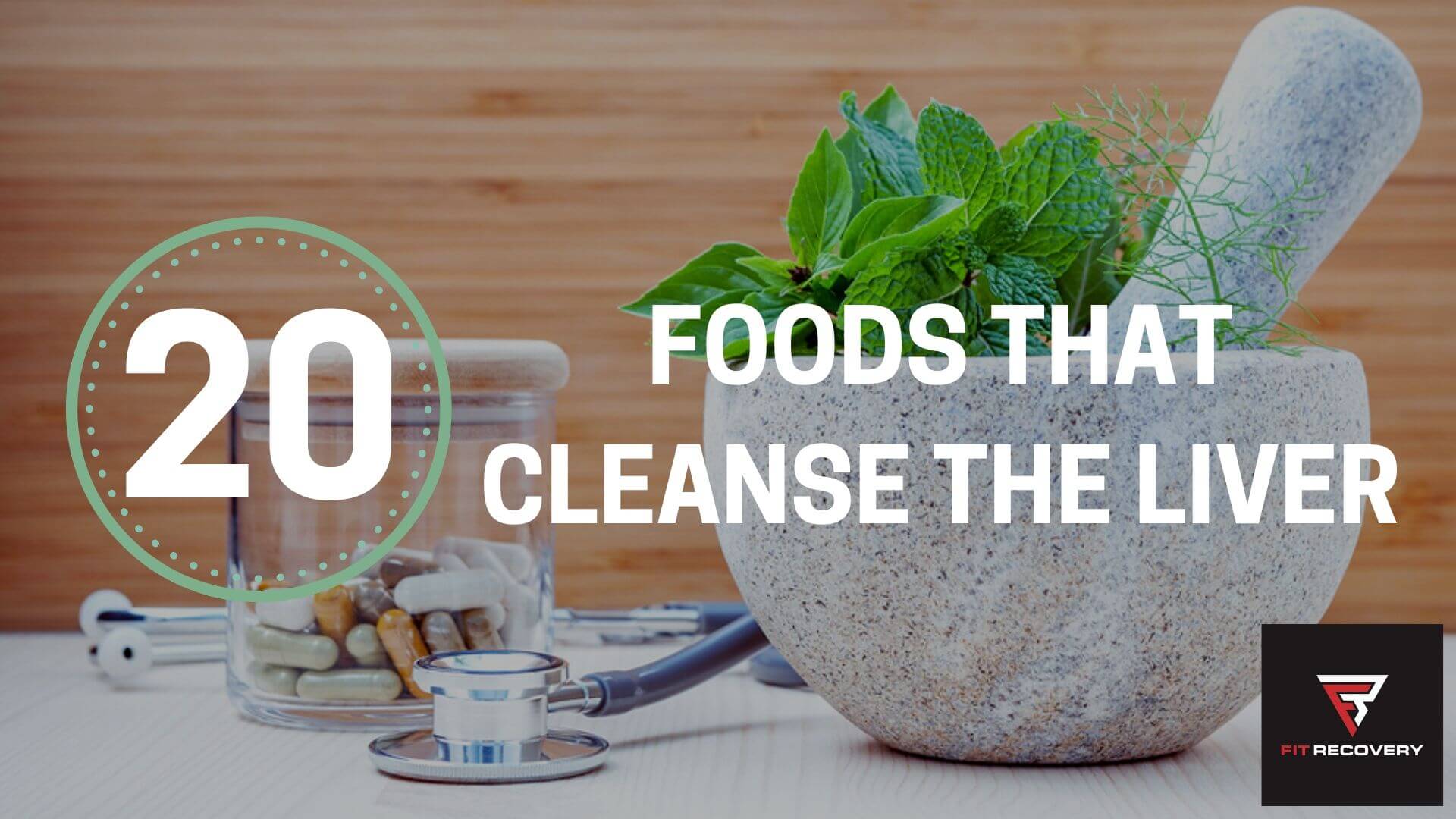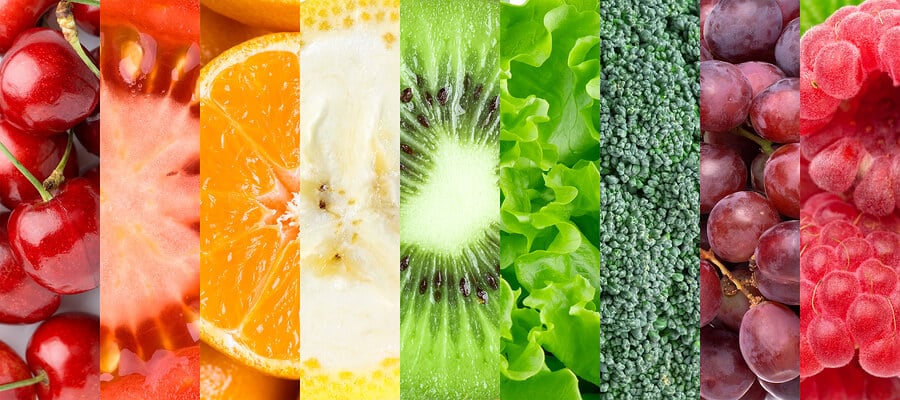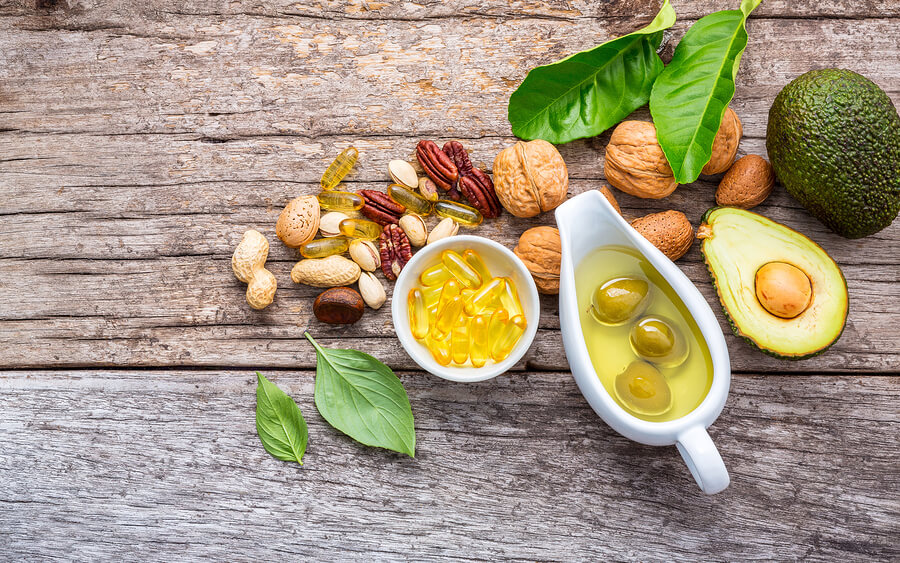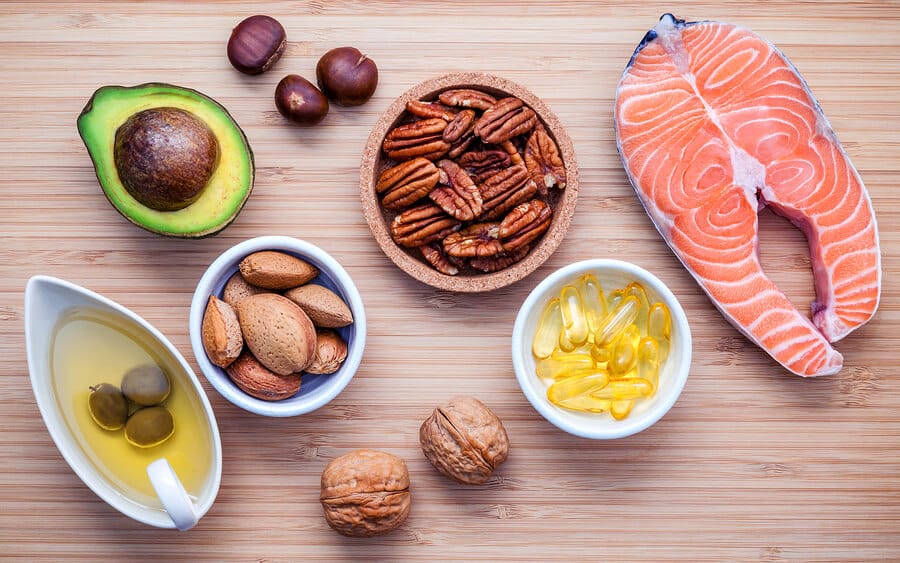This article is devoted to exploring the best detox foods that cleanse the liver. Below you’ll find a comprehensive list of cleansing foods backed by solid research. I’ll also provide some (admittedly subjective) tips for preparing these foods.

The liver is an indispensable organ that filters toxins out of the blood. There are a few key compounds, that we will discuss, that can derive from food in order to function at maximum potential.
A few weeks ago, I found myself in the produce aisle using Google to determine which nutrition that cleanses the liver would help. Right then and there, I decided to do the research myself and create a list that anyone could use.
Whether your goal is simply to start a temporary purge or quit poisoning your body with toxins and change your life, the foods below make for a stellar grocery shopping list.
Why alcoholics need to cleanse with detox liver foods
Not only are detox liver foods responsible for filtering toxins from the blood, but they can also be considered glands as they create necessary chemicals for the body.
Alcohol, even in small amounts, kills off cells. Although you can generate new cells, drinking too much over the years can impact its ability to regenerate these new cells and can result in permanent damage.
The excessive use of alcohol can contribute to the following diseases:
- Hepatic steatosis
- Alcoholic hepatitis
- Alcohol-related cirrhosis
What foods are good for liver repair?
1) Beets
Beets containing betaine and polyphenols answer this question. They help produce the best liver detox compounds.
A recent study showed that consuming beets significantly boosted the production of glutathione and superoxide dismutase, both of which are required for detoxification. (source)
C’s Tip: Fresh beet juice is a potent natural pre-workout supplement. Every weekend I juice 2-3 beets before heading to the gym for a hard lift and sparring session. It’s powerful stuff, so don’t drink more than half a cup at a time to avoid an upset stomach.
2) Coffee

Coffee had a bad reputation in health circles for many years, and for some reason it was lumped in with cigarettes as a common vice. Newer research has found that coffee is very rich in antioxidants that can repair damage caused by excessive drinking.
Studies have shown that coffee can aid in three ways:
- Reduce the amount of fat and collagen deposited
- Increase production of glutathione
- Modulate the gene and protein expression of several inflammatory mediators.
(source)
C’s Tip: Too much caffeine can cause anxiety and even panic attacks in some people. I stopped getting the jitters when I started limiting myself to 2-3 cups and then switching to yerba mate or herbal teas, both of which have a multitude of detox-promoting compounds.
3) Artichoke
Artichoke has been used for centuries as medicine, and recent research has found that the fleshy leaves of this plant can protect through several mechanisms:
- Increase bile secretion and circulation
- Protect cells and help them regenerate
- Reduce the amount of fat in the blood
(source)
Many ancient cultures viewed it as the seat of life. It’s no surprise that many of them identified artichoke as one of the most potent foods that detox the liver.
C’s Tip: Next time you see a globe artichoke in the store, know that taking the time to steam it yourself will be totally worth the effort. Add a little sea salt, Kerrygold butter and lemon juice and you’ve got one of the healthiest appetizers you can make.
4) Swiss Chard
Swiss chard is a leafy green vegetable that contains a natural compound called syringic acid, which shields cells from toxins and helps them regenerate. It also packs a solid dose of Vitamin K, which reduces cytokines that produce inflammation. (source)
In fact, any of the chard varieties (rainbow, red, etc.) and other leafy vegetables like mustard greens, kale, and bok choy can support health by reducing inflammation in the body.
C’s Tip: Sautéing swiss chard (and other leafy green vegetables) in olive oil with some garlic and sea salt is the tastiest and healthiest way to prepare them. Doing so will increase the bioavailability of their nutrients and approximately halve the total volume of the greens, making them easier to eat.
5) Blueberries

Blueberries have more antioxidant power than any other berries studied, and the wild Alaskan blueberry contains 3 to 5 times more antioxidants than berries from the continental U.S. (source)
Research has shown that blueberries reduce levels of ALT and hyaluronic acid – two blood serum indicators of problems – while increasing the amount of superoxide dismutase, a detoxifying foods compound. (source)
C’s Tip: Due to their relatively low sugar content, I try to keep blueberries in my fridge and eat a few handfuls throughout each day.
6) Turmeric
Turmeric has been used in Asia for 4,000 years as a tonic and inflammation-fighter. It contains curcumin, which is a natural compound that neutralizes cytokines that cause inflammation and fibrotic scarring. (source)
Along with vitamin supplementation and coconut oil, turmeric is a natural remedy that has recently been attacked by organizations that seem to have an agenda in favor of pharmaceuticals.
C’s Tip: Because I don’t usually have time to cook intricate Indian meals, I simply consume 1/4 teaspoon of organic turmeric powder each morning in water to reduce inflammation in my body.
It’s a good idea to use organic turmeric supplements if you’re not consuming the whole root, so as to avoid contamination with heavy metals – a minor yet real risk with imported spices.
7) Almonds
Almonds contain phenolic antioxidants, unsaturated fatty acids, vitamins, and minerals that keep the body nourished and reduce inflammation.
Other tree nuts (peanuts, cashews, filberts) contain similar nutrients, and it turns out that it’s a toss-up between almonds and peanuts for the highest amounts of protein and beneficial fats.
Almonds are often recommended for people with problems because they cause favorable changes in cholesterol that benefit health. (source)
C’s Tip: Here’s the best PBJ-style sandwich of all time: Organic almond butter and no-sugar-added fruit jelly spread on organic, sprouted, multigrain Food For Life bread (find it in the freezer section in your grocery store), lightly browned on each side in a pan with Kerrygold butter.
8) Garlic
The pungent smell of garlic is caused by sulfur-containing compounds that assist in detoxification. Moreover, garlic is a great source of selenium, arginine, vitamin B6 and vitamin C – all of which have powerful protective properties.
Garlic and beets probably have the best reputations as nourishment to cleanse the liver.
As it turns out, garlic is such a powerful detoxifier that it has been used successfully to treat alcoholic as well as acetaminophen-induced toxicity. (source)
C’s Tip: Since raw crushed garlic offers the most health benefits, I usually smash a few garlic cloves out of their pods with the side of a knife, and then throw them into a pan with leafy greens and olive oil at about mid-sauté.
9) Avocado

Avocados are a great source of fiber, vitamins C and E, and monounsaturated fats that help to balance cholesterol levels. Like tree nuts, avocados improve blood lipid profile and thereby reduce the amount of stress.
Researchers have recently found that avocados contain five different compounds that can protect and even reverse damage. (source)
C’s Tip: I eat fresh avocados as often as I can, but they tend to go bad quickly. Solution: many stores have packs of small vacuum-sealed containers of guacamole (with few added ingredients) that keep for much longer in the fridge.
10) Brussels sprouts
Brussels sprouts are cruciferous vegetables that contain compounds called glucosinolates, which have been found to protect through several mechanisms:
- Anti-fibrotic activity (i.e., prevention of scar tissue)
- Reduction of fat deposits
- Activation of the detoxification enzymes
(source)
Other cruciferous vegetables include broccoli, cabbage, and cauliflower, all of which contain glucosinolates and antioxidants that aid in detoxification.
C’s Tip: Try chopping Brussels sprouts into halves and sautéing with sea salt, a drizzle of olive oil, and high-quality balsamic vinegar until caramelized.
11) Green tea
Offering many antioxidants including EGCG, green tea has been shown to prevent fatty disease and improve function. (source)
Some studies have found that highly concentrated green tea supplements contain too much EGCG and can actually damage. It’s best to stick with real green tea instead of capsules.
C’s Tip: I like to pour boiling water over half a teaspoon of Japanese culinary-grade matcha powder, which contains the pulverized leaf and gives a more balanced range of nutrients than processed green tea extracts.
The energy boost and sense of well-being from this stuff is incredible!
12) Salmon

Salmon is often touted for its protein and “good fat” content. Salmon is one of the best meals that purify because it is a great source of omega-3 fatty acids, which consist of EPA and DHA.
Studies have found that DHA can reduce inflammation and even help to prevent fatty disease and fibrosis. (source)
C’s Tip: I try to eat grilled salmon or salmon sashimi as often as possible. I also consume the most potent omega-3s available from wild Alaskan sockeye salmon oil each day.
13) Cilantro
Cilantro contains antioxidants and polyphenols that offer protective effects for damage. (source)
There is also evidence that compounds in cilantro may bind to toxic metals (e.g., lead, cadmium, arsenic, mercury) and escort them out of the body.
C’s Tip: When I lived in New York City, I developed an obsession with Indian street food (especially The Kati Roll Company) that marinates meat with cilantro and other spices. These days, I often throw a bunch of cilantro into a food processor with lime juice, fresh garlic, and fresh ginger. It’s a delicious sauce or marinade for any kind of meat.
14) Sprouted quinoa
Grains like quinoa can improve function because they provide steady energy, are low glycemic index, and contain a range of beneficial nutrients and enzymes.
Sprouting grains reduces starch, which further lowers their glycemic index. The sprouting process also increases the amount of protein, vitamins and natural enzymes.
C’s Tip: Sprouted quinoa is tastier than regular quinoa, easy to make, and available on Amazon. Since I have no gluten sensitivity, I toast sprouted multigrain Food For Life bread each morning and highly recommend substituting this sprouted brand for regular toast!
15) Olive oil
Cold-extracted, extra virgin olive oil can help the body mend in several ways:
- Source of multiple polyphenols with proven anti-inflammatory properties
- High in oleic acid, which positively impacts gene expression
- Improves cholesterol levels and insulin response
(source)
C’s Tip: I use olive oil to cook leafy greens and cruciferous vegetables at low heat. At higher heat, olive oil will turn rancid, and so cold-pressed avocado oil may be a better option.
16) Aloe Vera Juice
Juice from the aloe vera plant is high in vitamins and unique antioxidants that promote detoxification and healing. In my opinion, aloe vera is one of the most underrated foods that purify.
One study even found that aloe vera juice could help reverse severe injury. (source)
C’s Tip: I’ve only come across aloe vera juice at Whole Foods and on Amazon. It is an acquired taste on its own, but it definitely mixes well in smoothies.
17) Lemons and limes
Lemons and limes are high in vitamin C, perhaps the most important vitamin for detoxification, as well as flavonoids that stimulate bile and prevent fat accumulation.
Lemons and other low-sugar citrus fruits like lemons and grapefruits have been shown to reduce the severity of lesions and bile duct damage caused by toxins. (source)
C’s Tip: Squeeze half of a fresh lemon or lime into a glass of cold water to get your day started. Or marinate chicken in copious amounts of lime juice and greek yogurt for 24 hours; it will be the most tender BBQ you’ve ever had.
18) Organic sauerkraut
In addition to all of the benefits of cruciferous vegetables, fermented cabbage contains probiotics, which are “healthy” bacteria that restore balance to the gut.
Most nutritionists don’t mention yogurt and sauerkraut in the context of meals that purify. However, probiotics have been shown to improve function immensely by supporting gut health.
Studies have found that probiotics have beneficial effects for people with disease, and many scientists consider the relationship between gut health and function as an exciting new research frontier. (source)
C’s Tip: Unrefrigerated sauerkraut is heated to an extent that kills the beneficial probiotics. Look for sauerkraut or kimchi (Korean pickled cabbage) in the refrigerated aisle at Whole Foods or other grocery stores.
19) Chili peppers
While many people associate chili peppers with detoxification, not many know that they’re some of the top foods that cleanse the liver!
Research has shown that the compound capsaicin, which gives chili peppers their heat, can prevent damage and reverse disease progression. (source)
C’s Tip: Tolerance to chili pepper heat has to be earned. My experiences with super-hot Indian food years ago gave me a capsaicin tolerance that allows me to enjoy many dishes that might have made my head spin long ago.
20) Onions
Onions are high in folic acid and quercetin, both of which are required for proper function and the scavenging of free radicals.
Numerous studies have demonstrated the efficacy of onions for cholesterol-induced oxidative stress, cadmium accumulation, fibrosis, fluke, and alcoholic fatty liver disease. (source)
C’s Tip: If you like Mexican or Indian food, or if you’re a fan of omelets, then onions shouldn’t be difficult to incorporate into your diet!
Does lemon water help?
Lemons and other low-sugar citrus fruits, like limes and grapefruits, were included in the list above because they’re great for repair! I have a routine of buying organic fresh-squeezed lemon juice from Whole Foods, and mixing it with my favorite mineral water, Gerolsteiner.
I typically take a few ounces of lemon juice, which is unsweetened, and top it off with sparkling mineral water to taste. This easy drink seems to get my digestion flowing, and I feel more clear-minded when I’m drinking it consistently.
Even better, grow or purchase some fresh lemons to make your own lemon juice.
What are the signs your liver is bad?
Symptoms of issues brought on by alcohol use can include:
- Sluggishness
- Skin rashes
- Confusion
- Headaches
- Frequent illness
- Pain in the upper right quadrant of the abdomen
- Yellowing of skin or eyes (jaundice)
Actually, the last point above is a symptom of an inflamed pancreas. But if this situation is caused by alcohol consumption, then you can bet that this organ is not functioning at 100% either.
Except for jaundice, I suffered from all of the above symptoms during my drinking years. But I often had outbreaks of eczema that have disappeared since I quit drinking.
Alcohol is not the only compound that can jeopardize health. Pollution, infections, lack of sleep, antidepressants, OTC painkillers, and a poor diet can all contribute to liver dysfunction.
How long does it take to cleanse?
The time it takes depends on many factors such as:
- How long you’ve been drinking
- How much you drink
- Whether or not you’ve done the best liver cleanses before
- The degree of best detox for the liver.
Is eating foods to cleanse the liver naturally the only way?

In addition to eating sustenances to cleanse the liver listed above, there are supplements that can help purge. One of my favorites is an herb called milk thistle.
Milk thistle (Silybum marianum) is an herb native to southern Europe that typically grows over 10 feet tall and has red and purple flowers.
Despite the scarcity of properly devised scientific research on milk thistle, it has been used for well over 2,000 years to treat and gallbladder problems.
Silymarin is the natural compound in milk thistle that accounts for its healing abilities. Milk thistle works by reducing liver inflammation and supercharging the ability to produce its own detoxification compounds.
Read this article to learn more about how milk thistle can help you repair naturally.
Conclusion

I hope this article has provided you with useful information!
If you happen to have an issue with heavy drinking, as I once did, then perhaps you’ve entertained the idea of quitting drinking for good.
If you have any questions, please post them in the comment box below.

Authors
-
A decade+ addiction-free, Chris Scott, the visionary founder of Fit Recovery, passionately guides Fit Recovery 2.0 Members toward a vibrant, healthier lifestyle. Through the integration of groundbreaking nutritional strategies, transformative reframing techniques, neurolinguistic programming, and dynamic pro-recovery habit systems, he inspires individuals to boldly take charge of their lives and break free from alcohol. Chris is celebrated as a Professional Member of the Alliance For Addiction Solutions. Moreover, he is the proud author of the bestselling book "Drinking Sucks!" which stands as a vital beacon of hope for those yearning to quit drinking. Additionally, he created the celebrated online program Fit Recovery 2.0, designed to provide unwavering support for individuals embarking on their recovery journey.
View all posts Fit Recovery Founder & Director -
Dr. Rebeca Eriksen is the Nutritional Consultant for Fit Recovery. She has a PhD in Nutritional Genetics from Imperial College London, and over ten years of clinical experience designing custom nutritional repair regimens for patients recovering from alcohol addiction. In addition to her work at the exclusive Executive Health clinic in Marbella, Spain, she helps to keep Fit Recovery up to date with emerging research.
View all posts











[…] We accept abstain from all alcohols of an envigorating quality whether ale, port, red wine, or ardent spirits, except as […]
Thanks to the team for good work done,I have hbv for the past two years but with your article I feel better now,may the good Lord bless you and your team to do more.
Thanks DJ, best of luck to you buddy!
Thank You!
You’re welcome! Glad this article helped!!